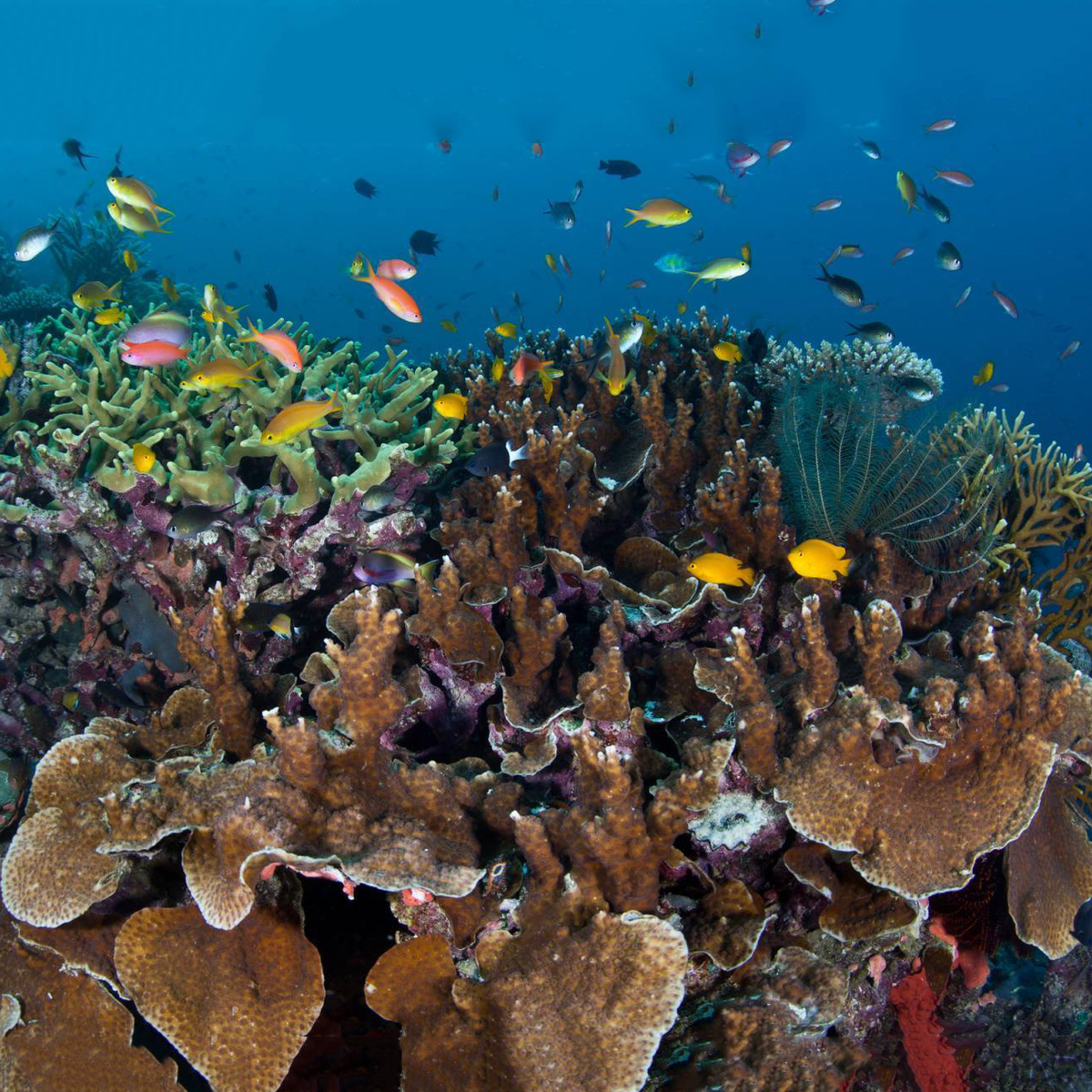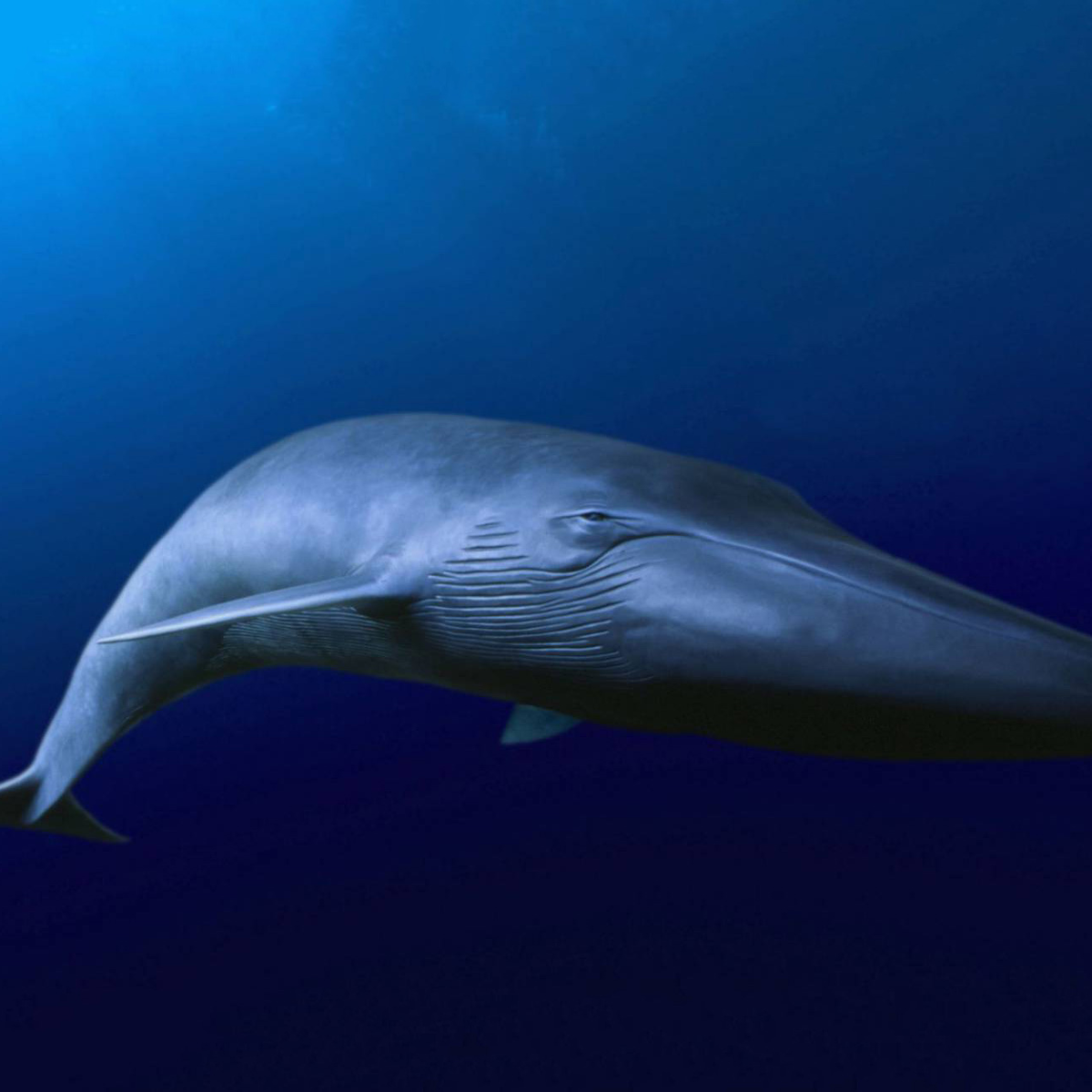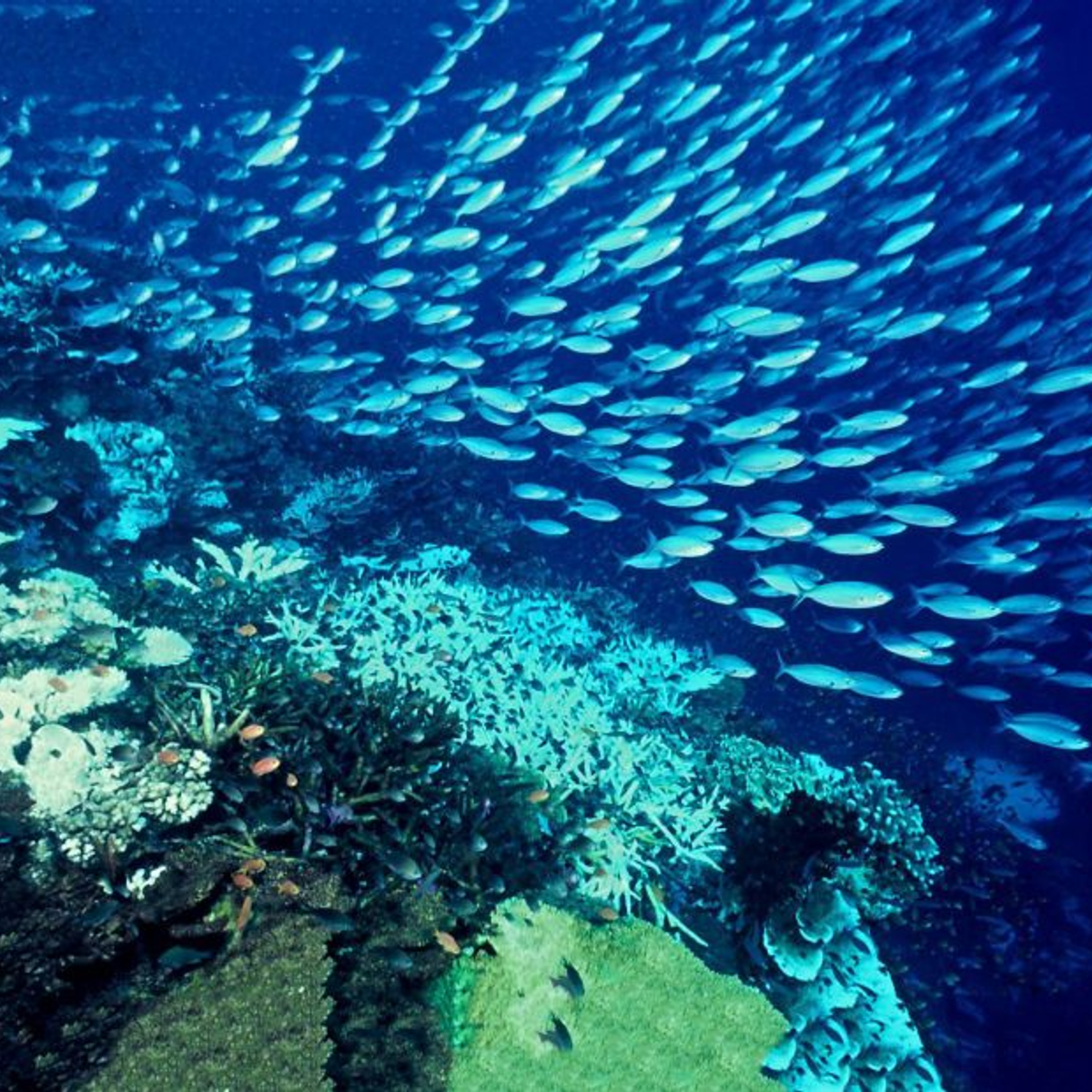2022, “a super year for the ocean”. 2022, “a super year for the ocean”. 2022, “a super year for the ocean”. 2022, “a super year for the ocean”. 2022, “a super year for the ocean”
2022, “a super year for the ocean”. 2022, “a super year for the ocean”. 2022, “a super year for the ocean”. 2022, “a super year for the ocean”
10 November 2022
2022, “a super year for the ocean”
Forum, Sustainability
The ocean is in a dire situation. Concerted, concrete and ambitious action is still needed if we are to avoid the worse, although progress has been made. The WWF (Switzerland) explains.
2022 has become a super year for the ocean, with several key breakthroughs at the Ocean Conference introducing a new chapter on ocean action. The UN Environment Assembly in March agreed to begin negotiations for a binding global treaty to end plastic pollution. Last month, the World Trade Organization succeeded in reaching consensus on banning harmful fisheries subsidies. This year’s Intergovernmental Conference on Marine Biodiversity of Areas Beyond National Jurisdiction could also lead to strengthening governance of the high seas. Later this year, the Conference of the Parties to the Convention on Biological Diversity (COP 15) is an opportunity to achieve a new target to protect 30% of the planet’s lands and seas by 2030. UNFCCC COP 27 will see a focus on climate adaptation measures and financing required to build ocean resilience.
Key issues to be resolved include:
- Enhanced cooperation
- Marine Protected Areas
- Environmental Impact Assessment
- Marine Genetic Resources
- Capacity Building and Transfer of Marine Technology
From the internal WWF delegation report back from the Ocean Treaty negotiations in New York in August 2022, significant progress was made. The treaty is close to the finish line and will hopefully be finished in January 2023. Given the high ambition currently retained in the text, the final treaty will provide an enabling framework for better protection of biodiversity, and more coherent and effective management of activities in Areas Beyond National Jurisdiction (ABNJ).
However, the document has no real enforcing mechanism and does not detail specific targets or policies that states should implement. Even so, we cannot overlook the small but significant gains made at the conference. For example, a number of countries are stepping up their marine protection targets. The Protecting Our Planet Challenge announced an investment of at least US$1 billion to support the creation, expansion and management of marine protected areas and Indigenous and locally governed marine and coastal areas by 2030. The Aquatic Blue Food Coalition launched successfully at the conference. A moratorium on deep seabed mining was a hot topic, with strong leadership coming from the “big-ocean states” of the Pacific, supported by French President Emmanuel Macron’s announcement of a “legal framework to stop high seas mining and to not allow new activities that endanger ecosystems.”
Countries collectively committed to do more, and faster, yet it's still blatantly clear that their words are not followed by actions. From an optimistic viewpoint, there are signs that we will see change during the coming Ocean Decade. But we are beyond the point of acknowledging demands; our leaders need to act on them too. In the last few years, new global commitments to improve scientific understanding and step up financing for a sustainable ocean have emerged.
Sources:
- https://wwf.panda.org/discover/our_focus/oceans_practice/ocean_and_climate/ and the linked report
- https://wwfint.awsassets.panda.org/downloads/blueprint_for_a_living_planet_final_june_2021_spreads.pdf
- https://news.un.org/en/story/2022/07/1121802
- https://www.wwfmmi.org/the_un_ocean_conference_from_the_eyes_of_a_cautious_optimist_/
- https://news.un.org/en/story/2022/07/1121802
- https://sdgs.un.org/partnerships/action-networks/ocean-commitments
The Ocean and Climate Change Dialogue took place during the June 2022 Bonn Climate Change Conference. The dialogue highlighted the vital importance of the ocean to livelihoods and biodiversity, and as a fundamental component of the climate system, while highlighting the need for greater ocean-related climate action:
- We must protect our ocean and value its potential as a place for sustainable climate solutions and action.
- Ocean-based measures offer significant mitigation (cutting greenhouse gas emissions) and adaptation (building resilience to climate change) options.
- The ocean offers a space for integrated solutions that can be reflected in national climate policies and strategies.
- Marine technology and marine and coastal nature-based solutions should be integrated to ensure that action is more robust, comprehensive and cost-effective than when using either solution alone.
- We must use, improve and integrate the latest available ocean science and other knowledge systems.
- A whole-of-society approach is needed for ocean-climate action, including to address governance aspects. • Funding for ocean-climate action needs to increase and access to funding must be supported. • Strengthened finance and other support, including capacity building, must embrace complexity to provide innovative and multidisciplinary solutions.
WWF works in partnership with communities, businesses and governments to restore ocean health for the benefit of people and nature. WWF’s priorities in ocean conservation translates through five global initiatives:
- Accelerating coastal communities-led conservation Target: 4 million km² of critical coastal ecosystems will be secured and coastal communities will be equipped with the skills, capacity and mandate needed to effectively manage the natural resources they depend upon by 2030.
- Sustainable Blue Economy Target: the Sustainable Blue Economy Finance Principles are mainstreamed into ocean finance decisions leading to at least US$25 billion being channelled into the sustainable blue economy by 2030.
- Protecting the seabed before it’s too late Target: a global moratorium on deep seabed mining and commitments to advance a circular economy.
- Coral reef rescue Target: 70% of the coral reefs least exposed to climate change will be safeguarded, improving food security and livelihoods for 30 million reef-dependent people in seven countries by 2030.
- No Plastic in Nature Target: a binding international agreement on plastics policy that sets national reduction targets, increases accountability and improves global standards by 2025.
Sources:
https://wwf.panda.org/discover/our_focus/oceans_practice/coastal_community_led_conservation/
https://wwf.panda.org/discover/our_focus/oceans_practice/blue_futures/
https://wwf.panda.org/discover/our_focus/oceans_practice/no_deep_seabed_mining/
https://wwf.panda.org/discover/our_focus/oceans_practice/coral_reef_rescue/
https://wwf.panda.org/discover/our_focus/markets/no_plastic_in_nature_new/
Since the 2019 IPCC Special Report on the Ocean, how has the situation evolved?
Alice Eymard, Ocean Focal Point, WWF (Switzerland): There has been no updated overview of the ecological situation with newer data since 2019. However, much has evolved in terms of attention that is given to the ocean in the public space. The ocean has, for too long, been largely absent from global discussions on climate change. This is changing. More than ever, policymakers and the public are aware that our climate and our ocean are in peril, and that the two are linked. The Intergovernmental Panel on Climate Change (IPCC) Special Report on the Ocean and Cryosphere in a Changing Climate as well as other research clearly demonstrate the urgent need to tackle the climate and ocean crises together. The magnitude of the problem requires ambitious actions, using every tool and mechanism at our disposal.
Have we reached a point of no return, knowing that the oceans can regenerate?
Scientists are debating when tipping points will be reached. A recent assessment shows that parts of the West Antarctic ice sheet may have already passed a tipping point. Potential early warning signals of the Greenland ice sheet, Atlantic Meridional Overturning Circulation, and Amazon rainforest destabilization have been detected. For some other tipping points, change is likely to be more dispersed. We estimate that both tropical coral reef death and abrupt permafrost thaw are possible at the current warming level. But thresholds vary between reefs and patches of permafrost. Both are already happening in some places, but in our assessment, these changes become much more widespread at a similar time beyond 1.5°C. The latest science from the IPCC shows that, even if the average global temperature rise is limited to 1.5°C, 70-90% of tropical coral reefs could be gone by 2050. At 2°C or above, almost none will survive.
What are the most urgent measures to be taken: carbon emissions, plastic pollution, underwater extraction, overfishing?
As the IPCC Special Report on the Ocean and Cryosphere in a Changing Climate has highlighted, the ocean holds many solutions required to respond to climate change, yet it is suffering from increasing climate change impacts. These impacts create a feedback loop, which negatively affects the ocean’s abilities to cope with the onslaught of emissions and mismanagement. Addressing the combined crises requires integrated ocean and climate approaches and solutions. In addition, there is a need for conservation and sustainable use of marine and coastal ecosystems to ensure ocean resilience. If managed effectively the ocean can contribute greatly to keep our climate in balance, feed a growing population, support economic development, and protect habitats and treasured wildlife. But only a healthy ocean can provide these essential services. So, clearly, all actions that contribute to restoring the balance of the ocean are needed to enhance the ocean’s resilience. Hence WWF supports targeted initiatives to restore ocean health and support the social, economic and environmental pillars of sustainable development [see below].
What high seas legislation is currently lacking?
Currently the ocean beyond national jurisdiction of states is managed via a patchwork of international agreements. Each covers only a sector or a region, and none provide a comprehensive system for protecting the marine environment, its species, and habitats. Some activities such as cable laying – so important for today’s internet-based economies and communication systems – are not covered by any agreement or management arrangement. Given the increasing activities in these areas, and the impacts of relatively new problems such as plastic pollution, there is an urgent need to ensure all human activities in this area are managed through a holistic approach that has biodiversity (ocean life) and ecosystem functions (and services to humanity) at its heart. A new treaty is being negotiated as an international legally binding instrument under UNCLOS on the conservation and sustainable use of marine biological diversity of areas beyond national jurisdiction (BBNJ), known as the High Seas Treaty for short. It will complement the Convention on Biological Diversity (CBD) by improving the legal framework applicable to areas beyond national jurisdiction. The treaty must be ambitious enough to tackle current and potential future problems facing the ocean, thus helping to ensure ocean health for current and future generations. It is also important that negotiators are given the political signal to finish the job, so that the treaty can enter into force and be implemented without delay. The ocean is under pressure; the BBNJ Ocean Treaty can and must help alleviate that pressure. Only then can we set the ocean on a path to recovery and sustainability.
Summit after summit, scientists, biologists and ecologists alert us to a constantly deteriorating situation, but what actual progress has been made?
For too long, the ocean has been absent from climate talks as well as from other global political agendas. In recent years, policymakers and the public have grown aware that our climate and our ocean are in peril. This is already a big step forward. Reaffirming that the ocean is fundamental to life on our planet and to our future, the signatories to the Lisbon Declaration (UN Ocean Conference, June 2022) emphasised the particular importance of implementing the Paris Agreement of 2015, and last November’s Glasgow Climate Pact to help ensure the health, productivity, sustainable use and resilience of the ocean.
How much of multinationals’ commitment to the ocean is greenwashing?
WWF has no data on this and therefore cannot answer the question. Greenwashing has been around for decades but has potentially grown in past years as a result of growing consumer demand for green products. There are 150 ocean commitments from the private sector registered on the SDG website. WWF’s blueprint for corporate climate action defines a robust mitigation hierarchy, where a company cannot easily or cost-effectively reduce or avoid offsetting its carbon emissions but focus on real and Paris-aligned reductions first.
In your opinion, what do we need to get things moving? Collective awareness, political will, binding legislation, precise scientific data…?
All those. Ocean action is climate action. The time for action is now. At UNFCCC COP27 in Sharm el-Sheikh (6-18 November 2022), WWF will continue to advocate for integrated ocean and climate action and finance as integral to achieving global climate goals. The ocean–climate agenda is three-fold:
- Ensure the outcomes from the Ocean-Climate Dialogue are presented at COP27 and priority interventions and tangible actions are embedded in the COP decision documents, reflecting tangible actions for implementation. The ocean is essential to a functioning climate. A recurring ocean-climate dialogue is essential to future climate agreements.
- Parties must scale and mainstream ocean-based climate solutions, strengthen ocean-climate action and finance and include these commitments in Nationally Determined Contributions (NDCs) and National Adaptation Plans (NAPs) as part of their Paris Agreement commitments. At least half of climate finance should be invested in adaptation and developed countries must immediately meet the $100bn/year climate finance commitment.
- Advance coastal adaptation and resilience for coastal communities on the front lines. Action must be taken now to strengthen the mitigation, adaptation and resilience potential of the ocean, as well as dependent communities, through nature-based solutions and actions that deliver net-zero outcomes.
What commitments has WWF made regarding the ocean?
WWF is committed to three ambitious goals for ocean conservation:
- Zero loss of natural habitats: conserve and effectively manage at least 30% of coastal and marine ecosystems by 2030.
- Halve Footprint: halve the world’s unsustainably managed fisheries by 2030.
- Zero extinction: halt overexploitation of species and recover and stabilize previously threatened species by 2030.


